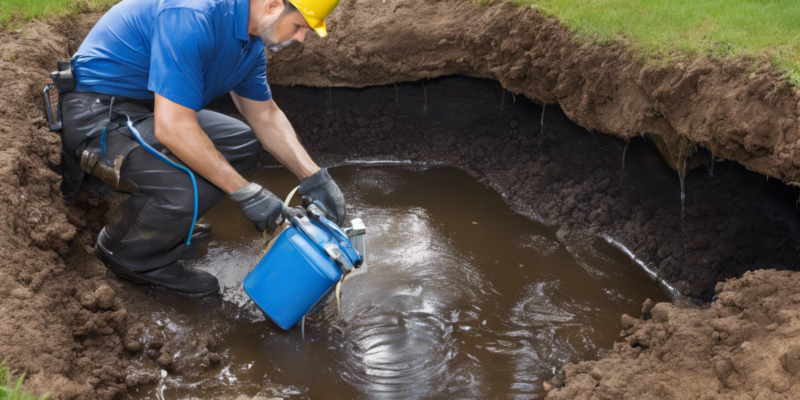Whether you are a homeowner, a business owner, or a property manager, detecting underground water leaks can save you from potential structural damage, high water bills, and environmental impact. In this comprehensive guide, we will explore the importance of detecting underground water leaks, signs of these leaks, methods for detecting them, and steps to take once a leak is identified.
Importance of Detecting Underground Water Leaks
Underground water leaks are often not immediately visible, leading to water wastage, mold growth, and even sinkholes if left undetected. These leaks can cause substantial damage to your property and inflate your water bills significantly. Moreover, water conservation efforts are vital, and preventing and repairing leaks can contribute to these efforts. Timely detection of underground water leaks can save you money, protect your property, and contribute to water conservation.
Signs of Underground Water Leaks
-
Increased Water Bills: A sudden spike in your water bill without any apparent reason could indicate an underground leak.
-
Low Water Pressure: If you notice a decrease in water pressure, it might be due to a leak in your plumbing system.
-
Water Sounds: Unexplained sounds of running water when all taps are turned off could indicate a hidden leak.
-
Damp or Moldy Areas: Damp, moldy, or mildewy spots in walls, floors, or ceilings can signal water leakage.
-
Foundation Cracks: Unexplained cracks in your property’s foundation could be caused by underground water leaks.
Methods for Detecting Underground Water Leaks
-
Water Meter Reading: Turn off all water sources and monitor the water meter. If the meter continues to run, it indicates a leak.
-
Leak Detection Devices: Utilize specialized equipment like acoustic leak detectors to listen for sounds of leaks underground.
-
Infrared Imaging: Infrared cameras can detect temperature differences caused by water leaks behind walls or under floors.
-
Ground Penetrating Radar: This technology uses radar pulses to image the subsurface, detecting anomalies like water leaks.
-
Dye Testing: Injecting dye into plumbing systems can help trace the path of water and identify leaks.
Steps to Take When a Leak is Detected
-
Locate the Leak: Use the detection methods to pinpoint the exact location of the underground water leak.
-
Repair the Leak: Depending on the severity and location of the leak, you may need to hire a professional plumber to fix it.
-
Prevent Future Leaks: Regularly inspect your plumbing system, maintain it well, and address any issues promptly to avoid future leaks.
-
Monitor Water Usage: Keep track of your water bills and usage to detect any unusual patterns that may indicate new leaks.
-
Conserve Water: Practicing water conservation habits can not only prevent leaks but also contribute to sustainable living.
Frequently Asked Questions (FAQs)
- How can I determine if I have an underground water leak?
Monitor your water meter for unusual activity, check for visible signs like damp spots, and listen for water sounds when no water is in use.
- Can I detect underground water leaks on my own?
While some simple leak detection methods can be done independently, utilizing professional services is advisable for accurate detection.
- Are underground water leaks covered by insurance?
Insurance coverage for water leaks varies. Review your policy or consult your insurance provider to understand your coverage.
- What should I do if I suspect an underground water leak?
Act promptly by conducting initial investigations, shutting off the main water supply if needed, and contacting a plumber for professional assistance.
- How much does it cost to repair an underground water leak?
The cost of repair depends on factors like the location and severity of the leak. It is advisable to obtain quotes from multiple plumbing services.
In conclusion, detecting underground water leaks is crucial for property owners to prevent damage, reduce water wastage, and contribute to environmental sustainability. By being vigilant for signs of leaks, employing various detection methods, and taking prompt action upon detection, you can protect your property and conserve water efficiently. Remember to regularly inspect your plumbing system and seek professional help when needed to ensure the integrity of your property’s water infrastructure.


Comments